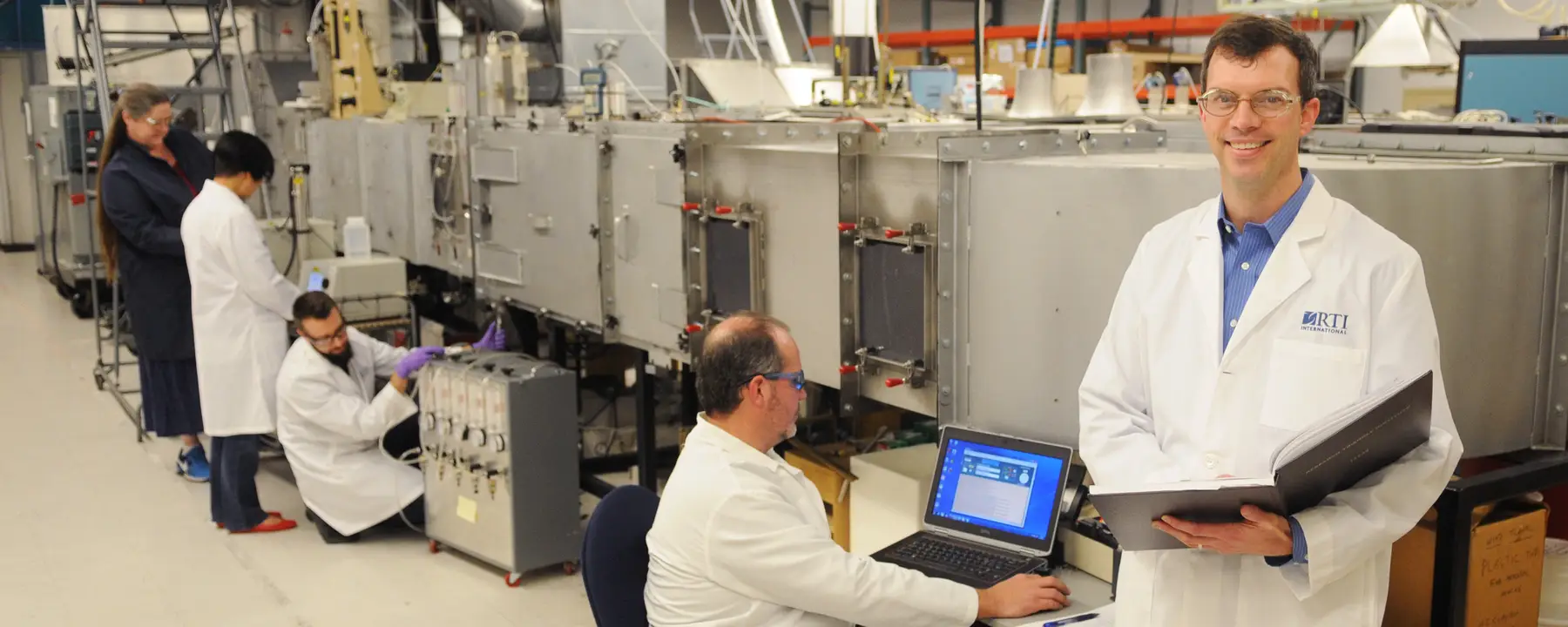Delivering expertise in air filtration technology and testing to meet a critical need for the U.S. military
During the 2014 Ebola outbreak in West Africa, the United States had approximately 3,000 troops and health care workers deployed in the area. Anticipating a need to transport highly infectious patients, the Defense Threat Reduction Agency (DTRA) sought a technical solution to modify existing isolation units to transport six or more patients at once.
Working on an aggressive timeline, RTI worked with Production Products to deliver a fully tested bioaerosol containment solution that met this critical need.
Overcoming Design and Containment Limitations
At the time of the Ebola outbreak, existing air transportation systems for infectious patients could only transport one patient at a time, partly due to challenges surrounding cabin pressure changes, potential for power loss, and safety needs for both crew and patient.
Taking all aspects of the outbreak and limitations into account, DTRA sought the ability to transport six or more people within C-17 and C-130 cargo planes. The urgent nature of the situation demanded the solution move from development to production in only a few months.
Leveraging Expertise in Bioaerosols and Containment to Test, Improve, and Validate Performance
DTRA reached out to RTI to undertake active testing of a filtration system to prove that it could remove and capture viable biological aerosols from breathing air.
Drawing on their knowledge of bioaerosols, contamination control, personal and collective protection, and filtration system testing, the RTI team supported a design review of a multiperson system.
We worked closely with Production Products, the company that designed, built, and manufactured the one-person Aeromedical Biological Containment System then in use.
Modifying our infrastructure for conducting live, custom bioaerosol testing on unique, nonstandard filtration systems, we adapted to Production Products’ equipment, designed a rigorous test, and employed existing protocols and procedures to deliver rapid and accurate results.
RTI completed full testing of the filtration system in November and December 2014, using a safe virus simulant called a phage to measure the number of infectious airborne particles upstream and downstream from the filtration system. The test provided a definitive measurement of viable virus particle removal from breathing air, proving that the system worked safely.
The team also measured filtration performance and provided Production Products with real-time feedback to inform design revisions. With our team seamlessly integrated into their development cycle, Production Products built a new filtration prototype within a week for further testing. The RTI team reviewed the test plan for the full system, requested modifications, and then observed the testing firsthand at Eglin Air Force Base in Valparaiso, Florida.
Exceeding Industry Standards within Expanded Isolation Units
By combining strong scientific and technical expertise with a longstanding client relationship and a seamless partnership with Production Products, we were able to validate filtration systems for transport systems that can hold up to 12 highly infectious patients.
Our team tested the prototype systems for containment, confirming removal efficiency at greater than 99.99 percent, exceeding our client’s specification.
Typically, a system of this complexity would take approximately two years to design and produce. We teamed with Production Products to move from concept to manufacturing in five months, while dealing with numerous changes and rapidly evolving specifications and needs.
The first systems were delivered in January 2015, and since the following spring more than 20 have been on standby for the next crisis.
- Defense Threat Reduction Agency (DTRA)
- Production Products



